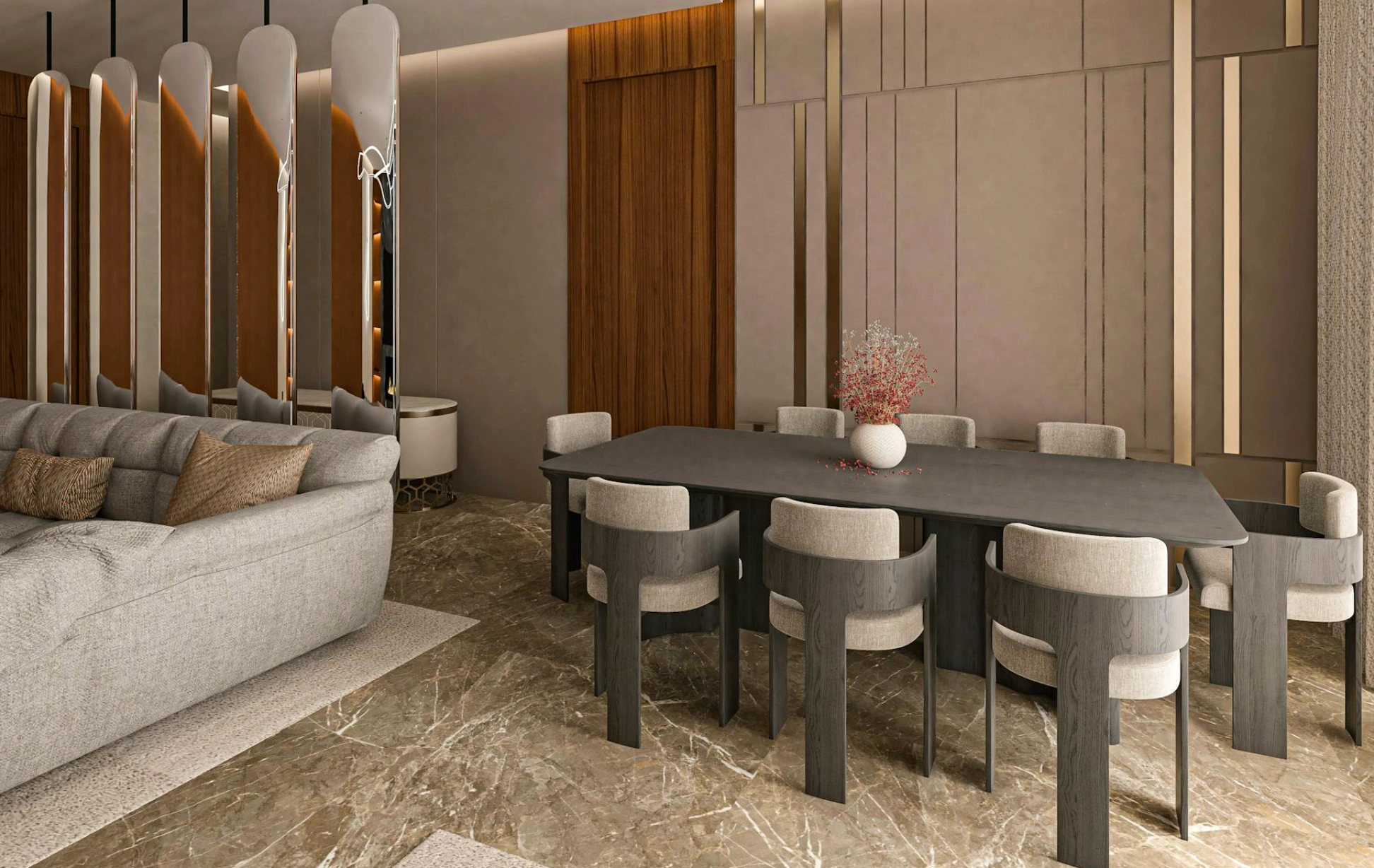Hotel Marketing Trends In 2025: A Simple Playbook For Standing Out
Updated on
Published on
Guests in 2025 plan trips with one thumb. They see a hotel on TikTok, save it to a list, compare prices on OTAs, check Google reviews, and only then click your booking button. If your hotel marketing still leans on generic photos and last minute discounts, it will feel invisible in that journey. The good news is that the same hotel marketing trends in 2025 that look overwhelming from the outside can become a clear, simple roadmap once you understand what guests really want. When you focus on a handful of practical moves, how to market your hotel suddenly feels less like chasing trends and more like building a brand people trust.
At a Glance
- AI powered personalization, short form video, and social commerce sit at the core of hospitality marketing trends 2025, not on the edges ( Mediaboom ).
- By 2030, direct digital channels are forecast to generate roughly 409 billion dollars in hotel bookings, compared with 333 billion from OTAs ( Skift Research ).
- Expedia’s Unpack 25 report highlights detour destinations, set jetting, and one click trips as major global travel behaviours shaping demand ( Expedia Group , PR Newswire ).
- Hospitality marketing trends 2025 centre on personalization, sustainability, and social media as core drivers of guest decisions ( HospitalityNet , EHL Hospitality Insights ).
- Hotels that align marketing, revenue, and operations around one guest journey see faster growth than those working in silos ( TravelBoom Marketing ).
What Guests Actually Want From Hotels In 2025
Before you think about channels, it helps to understand what guests are trying to solve. Hospitality research in 2025 points to three consistent themes: people want stays that feel easy, personal, and worth the price. They expect digital journeys that are as smooth as retail or ride share apps, but they also want a sense of human care and local connection when they arrive. Trends like flexible work, longer stays, and blended trips mean guests are also looking for spaces that can shift from relaxation to work to social time in a single stay ( NetSuite ).
- Start your planning with guest needs and scenarios, not features, and build offers around how people actually use your rooms and spaces.
- Keep your messaging plain and specific so people can quickly see if your hotel fits the stay they have in mind.

Social Video And Creators Are Your New Front Desk
For many travellers, the first time they see your lobby or rooftop is in a 15 second vertical video, not in a brochure. Reports on hotel marketing trends in 2025 place short form video, social commerce, and user generated content among the most impactful tactics for awareness and bookings ( Mediaboom ). At the same time, travel trend work from Expedia shows how social inspired trips, set jetting, and detour destinations are pushing people to explore places they might not have considered before ( Expedia Group ).
- Build recurring video series such as “24 hours here”, “weeknight at our bar”, or “what a rainy day looks like with us” rather than random posts.
- Encourage guests and local creators to tag you, then reshare their best content with clear credit so your feed feels lived in, not staged.
- Use simple on screen text and captions to connect each moment to clear actions such as booking a weekend, planning a workcation, or reserving a table.
-1.webp)
AI And First Party Data That Still Feel Human
AI shows up in almost every list of hospitality marketing trends 2025, but the strongest examples are quietly focused on making guests feel remembered rather than processed. Industry analysis highlights AI driven guest engagement and hyper personalized campaigns as core trends, from smarter chatbots to recommendation engines that tailor offers based on real behaviour ( HospitalityNet , Techfood ). When you collect first party data through your booking engine, Wi Fi, or loyalty program, AI can help you recognise patterns and send the right message at the right time. The key is to keep your voice warm and simple so personalized hotel marketing still feels like it is coming from a real team, not a robot.
- Ask for preferences in clear, voluntary ways, then show guests how sharing those details improves their stay, such as pillow types or arrival time.
- Use AI tools inside your CRM to suggest subject lines, images, and offers based on past behaviour, but always review the final message yourself.
- Start with small wins like personalised upsell emails for late check out, breakfast, or local experiences rather than trying to automate everything at once.

Direct Bookings Are Catching Up To OTAs
OTAs will not disappear, but their dominance is already being challenged. Skift Research forecasts that by 2030, hotel websites and other direct digital channels could generate about 409 billion dollars in bookings, compared with 333 billion from OTAs ( Skift Research , HFTP ). Commentaries around these forecasts make one thing clear: if you want more control over rate, data, and guest relationships, direct booking has to become a central pillar of hotel marketing in the next few years ( Skift ). That does not mean abandoning OTAs, but it does mean turning them into a powerful billboard rather than your only pipeline.
- Treat OTAs as high visibility shelves where people discover you, then give repeat guests simple reasons to return through your own website.
- Make your booking engine fast, mobile friendly, and visually consistent with your brand so it feels as easy as any app.
- Highlight specific, tangible direct perks such as better room selection, flexible changes, or small extras rather than vague claims about “best value”.
.webp)
Your Website Needs To Tell A Story In Under One Minute
When someone lands on your homepage, they are looking for a quick answer to “what will it feel like to stay here?” Guides to marketing for hospitality in 2025 emphasise that your site is no longer just a brochure; it is your most important sales tool, especially as direct bookings grow ( Mediaboom ). Travel marketing specialists also note that clear, skimmable content and strong calls to action can lift conversion and reduce booking abandonment ( TravelBoom Marketing ). If you want creative hotel marketing that actually converts, design your site around a handful of guest journeys instead of a long list of generic features.
- Give each key audience a path on your homepage such as “romantic escape”, “family break”, or “remote work week”, with tailored images and links.
- Use short paragraphs, strong headings, and icons so someone can understand your value even if they skim on a small screen.
- Keep your “book now” actions visible at all times and reduce the number of steps it takes to confirm a room.

Local Stories And Detour Destinations Put You On The Map
Travelers in 2025 are not just chasing capital cities and famous landmarks. Expedia’s Unpack 25 work highlights “detour destinations” as a major trend, where people add nearby, less obvious spots to their itineraries to get a different feel for a region ( Expedia Group ).Coverage of broader 2025 travel behaviour also points to demand for longer, more meaningful trips and multi stop itineraries that blend big sights with hidden gems ( The Guardian ). For hotel marketing, that is a huge opportunity; you give guests a story to buy into, not just a bed.
- Create simple maps and guides that show how to explore your surroundings in one day, three days, or a week, and feature them on your site and socials.
- Partner with local food, culture, and nature experiences, and build packages that make it easy to book them through you.
- Share real staff and guest recommendations rather than generic “top 10” lists, and update them regularly so they feel current.
-1.webp)
Sustainability And Value Need To Be Obvious
Most guests now expect hotels to be thinking seriously about sustainability, even if it is not the only reason they book. Hospitality reports for 2025 show how green travel initiatives and transparent environmental practices have moved from marketing extras into mainstream expectations ( HospitalityNet , Journey ). At the same time, hotel industry outlooks highlight rising costs and the importance of clearly showing value across the whole trip, not just in the headline rate ( AHLA ). Effective hotel marketing in 2025 ties those two themes together: guests see where their money goes and what kind of impact their stay has.
- Talk about sustainability with specific examples such as energy systems, local sourcing, or certifications, instead of vague green language.
- Package meaningful inclusions like breakfast, transit passes, or wellness activities so people can see the full value of the rate.
- Show how your hotel supports the local community, whether through hiring, partnerships, or events that are open to neighbours as well as guests.

Reviews, Ratings, And Replies Are Part Of Your Brand
Reputation has always mattered, but in 2025 it is fully woven into hotel marketing. Trend roundups highlight review management, social listening, and fast responses as some of the most underrated drivers of bookings, especially among younger travellers who treat reviews like a non negotiable filter ( Mediaboom , TravelBoom Marketing ). When someone looks up how to market your hotel today, they are really asking how to earn and keep trust in public. Your replies, not just your scores, show people what it will feel like when something goes wrong or right.
- Set simple standards for review responses such as replying within a set timeframe and always using a warm, human tone.
- Look for patterns in feedback, fix recurring issues, and then mention those improvements both in your replies and on your site.
- Bring your best reviews and ratings into your own hotel marketing by featuring them alongside key offers and calls to action.
One Commercial Team, One Guest Journey
Behind many successful properties is a quiet shift in how teams work together. Hospitality industry trend reports highlight more hotels blending sales, marketing, and revenue management into one commercial view so they can respond quickly to demand spikes, soft periods, and new segments ( EHL Hospitality Insights , TravelBoom Marketing ). Instead of marketing running campaigns in isolation, hotel marketing trends in 2025 favour cross functional planning around the full guest journey. That shift turns campaigns into levers for very specific goals, like filling midweek gaps or increasing stays from a particular country.
- Share one simple dashboard across teams so everyone sees pick up, channel mix, and key guest segments in the same way.
- Choose a clear focus each month, such as boosting direct bookings or growing shoulder season occupancy, and build campaigns around that.
- Review results together so you can double down on the creative hotel marketing ideas that actually moved revenue, not just engagement.

FAQ
What are the most important hotel marketing trends in 2025?
The key hotel marketing trends in 2025 are AI driven personalization, social video, stronger direct bookings, visible sustainability efforts, and tighter alignment between sales, marketing, and revenue teams.
How should I think about how to market your hotel if I have a small budget?
Focus on a clean direct booking website, one or two social channels, and email, then build simple offers and stories around the guests you serve best.
Are OTAs still useful if direct bookings are growing?
Yes, OTAs remain valuable for reach and discovery, but the goal is to turn those guests into loyal direct bookers over time.
Where does creative hotel marketing make the biggest difference?
Creative hotel marketing works hardest where competitors look the same, especially in social feeds, rate displays, and local storytelling.
Which metrics should I watch to know if my hotel marketing is working in 2025?
Track direct booking share, website conversion, repeat stays, and review scores alongside occupancy and ADR to see if your strategy is actually landing.
Your 2025 Hotel Playbook Starts With One Guest
It is easy to get lost in buzzwords when you read about hospitality marketing trends 2025, but at the centre of everything is one person planning one stay. If you use social video to show real moments, first party data to personalise without being pushy, direct bookings to own your relationships, and local stories to stand out, you already have a strong answer to how to market your hotel this year. From there, each experiment in hotel marketing becomes a way to serve that guest better, not just another tactic to try. And when guests feel that difference, they turn your property into its own best advertisement, one recommendation at a time.



webp.webp)
webp.webp)




